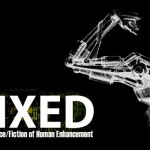
Posted on November 22, 2016
More than a month after Donald Trump defeated Hillary Clinton, the disability community shows little sign of letting go of its grief and fear and no wonder.
In Clinton, the community heard a candidate who took turns applauding people with disabilities (they’ve “changed things for the better in our country”) and advocating for them (they’re “too often invisible, overlooked and undervalued”).
She promoted a plan designed to push states to require health coverage for autism services in private insurance plans,
This entry was posted in autism, civil rights, community living, developmental disabilities, diversity, employment, inclusion, people with disabilities, physical disabilities, politics, public policy, subminimum wage, transportation, Uncategorized and tagged American Association of People With Disabilities, Barack Obama, Bill Clinton, disability community, Donald Trump, Hillary Clinton, IDEA funding, Individuals with Disabilities Education Act, National Council on Independent Living, New York Times, Rehabilitation Act, Serge Kovaleski.

Posted on January 13, 2016
Thursday is my favorite day of the week this month. That’s because the Center for Disability Studies’ Disability Cinema series is screening a different film every Thursday in January. The series kicked off on the 7th with Tod Browning’s Freaks, a cult classic from the 30’s that prompts viewers to ponder issues of community, identity and bias in the context of a richly-layered tale of love, camaraderie, betrayal and vengeance. Rachel Adams from Columbia University launched the evening with some
This entry was posted in Center for Disability Studies, diversity, inclusion, physical disabilities, The Arts and tagged Columbia University, Disability Cinema, Fixed: The Science/Fiction of Human Enhancement, Rachel Adams, Stephanie Kerschbaum, Tod Browning's Freaks, University of Delaware.

Posted on December 23, 2015
Like millions of other children, I grew up watching Sesame Street for its colorfully entertaining characters. Looking back, I realize that these characters not only opened my eyes to the world of education at a critically young age, but helped me develop an extremely open mind toward diversity. I may no longer be part of its target demographic audience, but I can’t help but be captivated once again by Sesame Street and the introduction of its newest Muppet playmate,
This entry was posted in autism, Center for Disability Studies, developmental disabilities, diversity, Education, inclusion, The Arts, Uncategorized and tagged autism, Elmo, Julia, Sesame Street, The Amazing Song.




